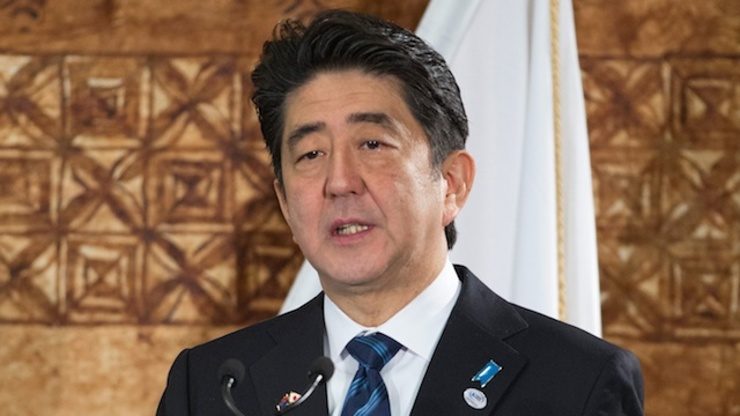SUMMARY
This is AI generated summarization, which may have errors. For context, always refer to the full article.

SYDNEY, Australia – Japanese Prime Minister Shinzo Abe has played down recent tensions with neighbor China, saying the countries were “inextricably linked” and his door was always open for dialogue.
Tokyo and Beijing have long been at odds over islands in the East China Sea with simmering distrust flaring last week after Japan relaxed restrictions on use of its armed forces in a highly controversial change in military policy.
Abe was in Canberra Tuesday, July 8, where he and counterpart Tony Abbott were to sign an agreement on closer defense ties, a move that could further anger China.
In an interview with The Australian broadsheet, Abe said he was keen to nurture a mutually beneficial relationship with Beijing, while urging China to play a constructive role in regional security.
“Japan and China are inextricably linked to each other. It is not uncommon for various unresolved issues to exist between neighboring countries,” he said.
“China is a major country which, together with Japan and Australia, has to play a prominent role in ensuring the peace and prosperity of the Asia-Pacific region.
“It is my strong expectation China will abide by international norms and play a constructive role in dealing with regional issues.
“In accordance with the principle of a mutually beneficial relationship based on common strategic interests, I would like to develop relations with China in a way that keeps a broad perspective.
“My door is always open for dialogue. I sincerely hope that China takes the same approach.”
China last week lashed out at Abe after his cabinet formally endorsed a reinterpretation of a constitutional clause banning the use of armed force except in very narrowly-defined circumstances.
Beijing argued that it could open the door to remilitarization of a country it considers insufficiently penitent for its actions in World War II.
Tensions also continue to simmer over the hotly contested Japanese-controlled Senkaku islands in the East China Sea, which China also claims and calls the Diaoyus.
During his visit to Australia, Abe attended a meeting of the cabinet-level National Security Committee in Canberra and addressed parliament, the first Japanese leader to do so.
The two sides will finalize a deal to share defense technology, which could lead to closer cooperation on submarine technology and an increase in joint military training.
Abe said in the interview that Australia and Japan had become “strategic partners through deepening concrete defense cooperation”, as well as through joint peacekeeping efforts, joint military exercises and exchanges of defense leaders.
Abbott also moved to reassure China, saying the two countries’ closer defense ties was “not a partnership against anyone; it’s a partnership for peace, for prosperity and for the rule of law”.
“Our objective is engagement. We both welcome the greater trust and openness in our region that’s exemplified by China’s participation in this year’s RimPac naval exercises,” he told parliament. – Rappler.com
Add a comment
How does this make you feel?
There are no comments yet. Add your comment to start the conversation.